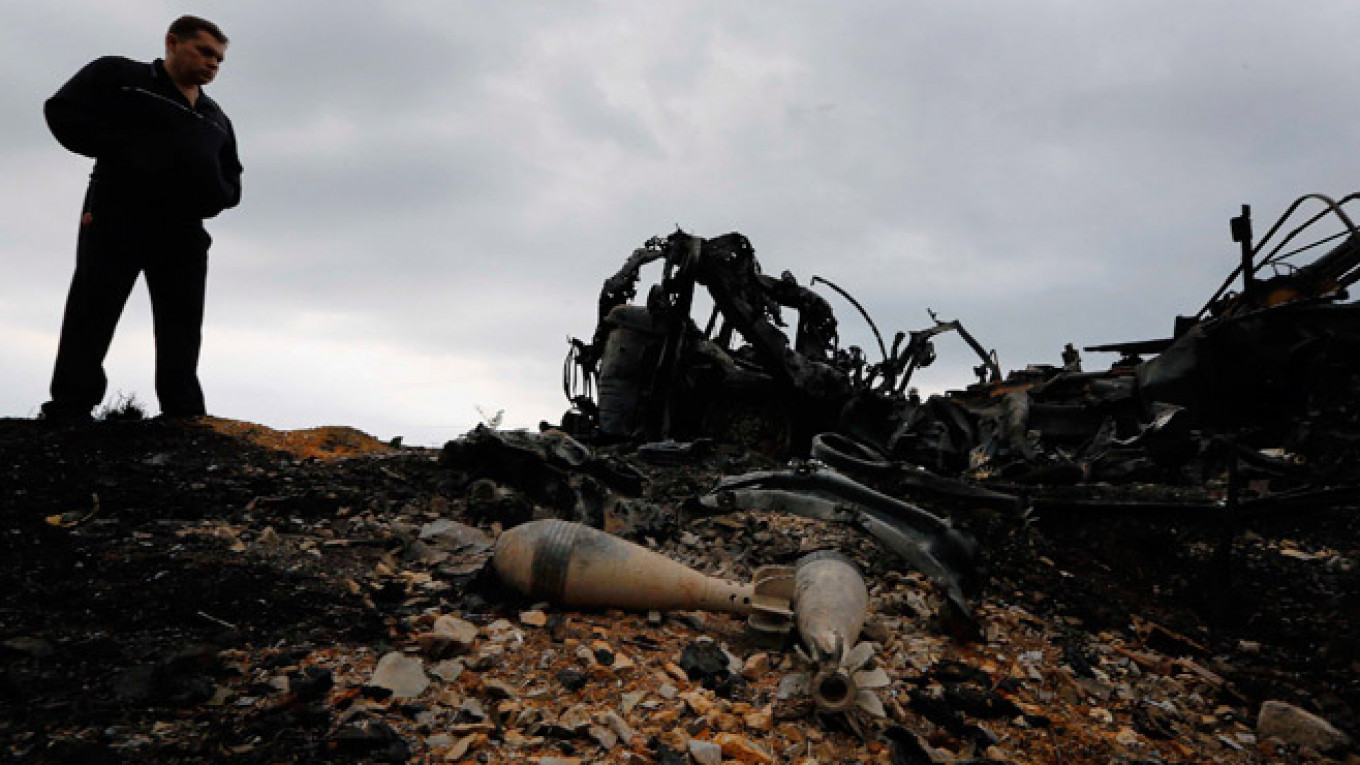A reluctant Ukrainian government agreed to launch discussions Wednesday on giving more powers to the regions under a peace plan brokered by the Organization for Security and Cooperation in Europe, but it remains wary of engaging with pro-Russian separatists who have declared independence in two eastern regions.
Ukraine's prime minister, Arseniy Yatsenyuk, was to chair the first in a series of round tables set to include national lawmakers, government figures and regional officials in line with proposals drafted by the OSCE, a top trans-Atlantic security and rights group that includes Russia and the U.S.
Russia has strongly backed the Swiss-drafted road map, but Ukraine has remained cool to the plan and U.S. officials view its prospects for success skeptically.
Ukraine and the West have accused Moscow of fomenting the unrest in eastern Ukraine, where pro-Russian insurgents seized administrative buildings, fought government forces and declared independence for the Donetsk and Luhansk regions after a controversial weekend referendum. The Ukrainian government and Western powers have rejected the referendum as a sham.
Speaking in Brussels on Tuesday, Yatsenyuk thanked the OSCE for its plan but said Ukraine had its own plan for ending the crisis and said the people of his country should settle the issue themselves. He disclosed no details of that plan.
Ukrainian forces have mounted an offensive against the armed insurgents, and dozens have died in the fighting across the east. On Tuesday, the Defense Ministry said six soldiers were killed by insurgents who ambushed a convoy near the city of Kramatorsk in the Donetsk region.
On Wednesday morning, AP journalists saw charred carcasses of a Ukrainian armored personnel carrier and a truck at the site of the clash.
The OSCE plan calls on all sides to refrain from violence and urges amnesty for those involved in the unrest as well as talks on decentralization and the status of the Russian language. It envisages a quick launch of high-level round tables across the country bringing together national lawmakers and representatives of the central government and the regions.
The first round table set to be held on Wednesday in Kiev will include Ukraine's former presidents, officials and lawmakers, but there has been no word about inviting rebels as the government has staunchly refused to talk to "separatists."
Insurgents in the east have shrugged off the round table organized by the government as meaningless window dressing amid the continuing military operation.
"The government in Kiev does not want to listen to the people of Donetsk," said Denis Patkovski, a member of pro-Russian militia in Slovyansk, a city in the Donetsk region that has seen some of the most intense fighting in recent weeks. "They just come here with their guns."
A fellow militiaman, Sergei Davidov, also was skeptical: "How can there be any relationship with us when they bring their weapons? They've simply got to pack up and leave and nothing more will come of it."
Former Prime Minister Yulia Tymoshenko, who is running for president in May 25 election, criticized the authorities for failing to engage its opponents and urged the government to move the round tables from the capital to Donetsk, the main city in the rebellious east.
Ukrainian Foreign Ministry spokesman Yevhen Perebiynis lamented that the OSCE deal does not specifically oblige Russia to do anything, saying that Moscow must be urged to stop sponsoring terrorists to de-escalate the conflict.
Russia has dismissed the accusations and assailed the Ukrainian authorities for their reluctance to hold talks with its opponents in the east before the May 25 vote. The insurgents in Luhansk have already said they would not hold the balloting, and the leader of pro-Russian activists in Donetsk, Denis Pushilin, said they will use unspecified "means and methods" to prevent the vote from happening.
A Message from The Moscow Times:
Dear readers,
We are facing unprecedented challenges. Russia's Prosecutor General's Office has designated The Moscow Times as an "undesirable" organization, criminalizing our work and putting our staff at risk of prosecution. This follows our earlier unjust labeling as a "foreign agent."
These actions are direct attempts to silence independent journalism in Russia. The authorities claim our work "discredits the decisions of the Russian leadership." We see things differently: we strive to provide accurate, unbiased reporting on Russia.
We, the journalists of The Moscow Times, refuse to be silenced. But to continue our work, we need your help.
Your support, no matter how small, makes a world of difference. If you can, please support us monthly starting from just $2. It's quick to set up, and every contribution makes a significant impact.
By supporting The Moscow Times, you're defending open, independent journalism in the face of repression. Thank you for standing with us.
Remind me later.






